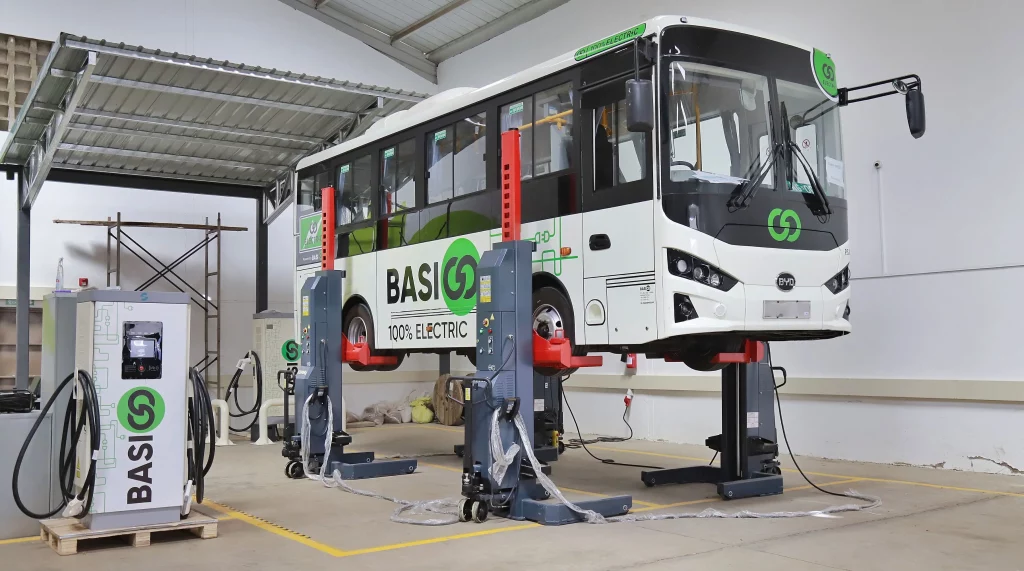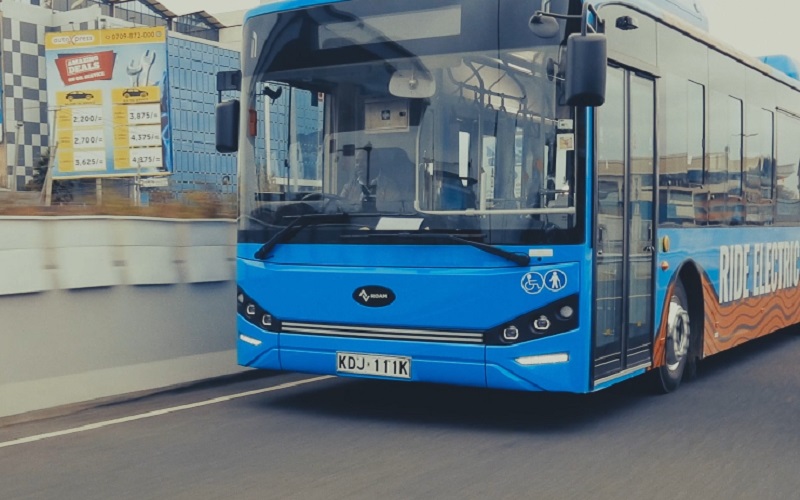Roam Motors and BasiGo run Kenya’s electric motoring space. Both offer electric buses for public transport, but their operations are based on different business models.
Electric buses are becoming a common sight in Nairobi. These buses are primarily offered by two companies, Roam and BasiGo, who have been at the forefront of popularising electric vehicles in the country.
Starting with these buses, Kenya is attempting to match the strides made by developing nations, such as the U.K., which plans to replace petrol or diesel-powered vehicles with electric ones by 2030. The U.K.’s approach is different because it targets private vehicle owners and has received government backing of more than £1 billion in vehicle charging infrastructure and hundreds of millions of pounds in grant schemes to steer motorists to electric vehicles. On the other hand, Kenya is focused on electric public transportation by small companies and launching electric mobility tariffs to make ownership as affordable as possible.
All about reducing carbon emissions
Jit Bhattacharya, the CEO of BasiGo, and Albin Wilson, the chief product and strategy officer of Roam Motors, shared their insights on the benefits, challenges, and future of electric motoring in Kenya with TechCabal. Their responses shed light on the advantages of electric vehicles (EVs) in the Kenyan context.
A key point highlighted by Bhattacharya and Wilson is the importance of transitioning away from imported petroleum fuels. Like many other African countries, Kenya heavily relies on imported fossil fuels for transportation, which strains the economy and contributes to environmental pollution and climate change. Kenya seeks to reduce its dependence on imported petroleum products for vehicles by shifting to EVs.
“The greatest benefit of e-mobility in Kenya is the shifting away from dependence on imported petroleum fuels and instead using domestically produced renewable electricity to power our transport,” Bhattacharya says. “Replacing a single diesel bus in Nairobi with an electric one avoids the consumption of 20,000 litres of imported diesel fuel per year and replaces it with 50 MWh of renewable electricity produced in Kenya. It further eliminates the toxic air pollution from diesel tailpipe emission and reduces CO2 emissions by 50 tonnes per year.”
Wilson highlighted other benefits, such as less noise and reduced operational expenses. “Any user of our vehicles (motorcycles) lowers operational expenses by 76%, and their fleets have less noise and reduced emissions,” he said.
Why electric buses and not electric cars?
Vehicles are not cheap in Kenya, and electric vehicles attract an even higher price tag. Besides, people who can afford them have mentioned high maintenance costs and fuel prices. TechCabal wanted to understand if this was one of the issues facing electric motoring in Kenya and why it is the best approach to start with electrifying mass transit vehicles.
“The key challenge to electric vehicles in Kenya is the high upfront cost. To directly address this challenge, BasiGo designed our Pay-As-You-Drive financing model,” Bhattacharya said. “One of BasiGo’s main values is to make the benefits of electric mobility accessible to all people. Most people in Kenya cannot afford private passenger cars. A recent study by the government found that 80% of people rely on a bus or walking every day to get to and from work and other activities. We are focused on electric buses to bring the benefits of electric vehicles accessible to the mass market.”
Are the electric buses in Nairobi enough?
According to Bhattacharya BasiGo’s current fleet in Nairobi consists of 17 BYD K6 model electric buses. These 25-seat buses have a driving range of 250 kilometres and can be recharged in two hours.

In contrast, the Roam Rapid by Roam Motors, which plies the same routes in Nairobi, has a larger battery and an additional range of up to 360 kilometres. Its passenger carrying capacity is also bigger at 77 passengers. However, the bus has been designed for the bus rapid transit (BRT) system, and according to Wilson, only one unit runs operations in Nairobi. He, however, stated that additional Roam Rapid buses will be added as soon as Kenya finishes setting up the BRT infrastructure.
Overall, these are very few buses for a city where Matatu operators manage hundreds of petrol or diesel-powered buses, and it is not often that passengers can ride in one.
How much do electric buses cost in Kenya?
Matatu operators and bus owners are the key customers of both BasiGo and Roam. BasiGo, in this case, offers them an electric alternative to diesel buses through the Pay-As-You-Drive financing model. Currently, BasiGo has electric buses deployed with six separate Nairobi operators.
BasiGo’s financing model is quite straightforward. Owners can purchase the electric bus without the expensive battery for a similar upfront cost to a diesel bus. They then pay for the battery through a Pay-As-You-Drive subscription, including leasing the battery, free charging at BasiGo’s charging stations, and free service and maintenance. The upfront price for a K6 electric bus is KES 5 million ($35,600), with a Pay-As-You-Drive subscription of KES 20 ($0.14) per kilometre.
Roam will not adopt a Pay-As-You-Drive model. However, it will target bus operators with larger fleets in a business-to-business model. Device financing will be offered to interested SACCOs, with perks such as maintenance and charging infrastructure being offered by the company. These buses are scheduled to launch before the end of 2023.
While the buses offer more amenities such as access to charging ports, better legroom and free Wi-Fi, passengers pay the same fare as diesel-powered buses.
The competition and expansion plans
In terms of competition, the buses’ main competitors in the electric motoring space in Kenya are the diesel buses manufactured by foreign companies like Isuzu, Mitsubishi, Hino, Mercedes, and Hino. Roam’s Wilson believes that gas-powered buses are their biggest rivals. He adds that any other company trying to enter the Kenyan market will not be Roam’s rival.
“Anyone trying to launch electric vehicles is helping us out in electrifying transport systems in Kenya, East Africa, and Africa at large. So, the only competition we really see is more diesel vehicles slowing down the growth of electric vehicles,” Wilson said.
When asked about expanding operations beyond Nairobi, Bhattacharya stated that BasiGo’s current focus is solely on the Nairobi market. However, as they scale their operations in Nairobi, they plan to expand to other cities in Kenya and across East Africa.
Roam Rapid buses are also limited in Nairobi, although Roam Air is available nationwide. There are no plans to go beyond Kenya for now, although that is always a plan as soon as a company starts to scale and grow.
The future of electric motoring in Kenya
TechCabal wanted to know from Bhattacharya about the future of electric motoring in Kenya, considering the country’s unreliable power grid. He told this publication that BasiGo had been operating electric buses in Nairobi for over a year, during which power outages have only affected the ability to charge the buses.
“BasiGo has had electric buses operating in Nairobi for over a year. Our buses have now driven over 280,000 kilometres and carried over 350,000 passengers. In that entire time, power outages have only impacted the ability of our buses to charge. Electric buses primarily recharge during nighttime hours when there is a low electricity demand and the grid is quite reliable,” added the CEO.
Lastly, when asked about the future of BasiGo, Bhattacharya revealed their growth ambition. The company aims to deliver 1,000 electric buses to operators across Kenya within three years. Roam, however, plans to wait for the completion of the BRT network to launch additional buses and will start working with operators before the end of the year. It has not revealed how many fleets will be launched at first.
What do you think about our stories? Tell us how you feel by taking this quick 3-minute survey.






















